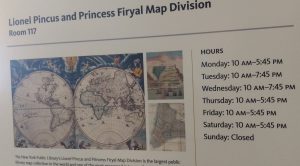Today we took part in the library/NYPIRG Earth Day screen print and button making session, and then returned to the classroom to review the Wikipedia assignment guidelines and the final project guidelines.
For Monday, please review the Wikipedia assignment guidelines, begin to think about the article(s) you might improve through editing, writing, or creating references, and the photos or media you will contribute to the Wikimedia Commons.
Also be prepared to discuss the 3 short assigned readings:
Lih, Andrew. “Can Wikipedia Survive?” The New York Times. 20 June 2015. Web.
Postrel, Virigina. “Who Killed Wikipedia?” Pacific Standard. 17 Nov. 2014. Web.
Randall, Eric. “How A Racoon Became an Aardvark.” The New Yorker. 20 July 2014. Web.
On Wednesday, April 26 our guest lecturers, Prof. Ann Matsuuchi from LaGuardia Community College and Richard Knipel, president of the Wikimedia NYC Chapter, will lead us in a Wikipedia workshop. We’ll make use of the tablets; it’s fine to bring your own laptop if you like.




